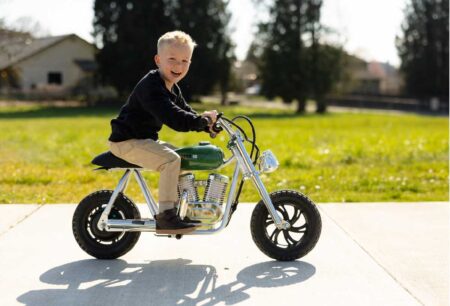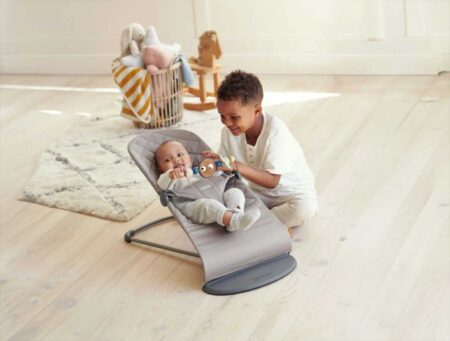Putting your newborn to sleep without being held in the first months of his/her life is a life’s struggle for new parents. This is why understanding their reason why they crave being held, and how it affects them, allows us to respond accordingly with empathy and give them what they truly need.
Why Newborns Crave Being Held or Want To Be In Constant Contact
After birth, newborns feel cold, different, and strange. Very far from the warmth, security and rhythm that they’ve felt for nine months inside their mother’s womb. This is why most newborn won’t sleep unless held. Holding them helps newborns feel safe, regulated, and comforted. Being held in the arms of their mother helps with bonding, it stabilizes their heartbeat, breathing, regulates body temperature and digestion. Being held close is not really a habit that we should break; it’s a biological need which has to be fulfilled.
So, what helps?
Babies feel warm and safe when they are held, cuddling them and being there for them for a little more goes a long way. There are other things that can help and support parents. It’s by having supportive tools like a nursing pillow, which lifts a lot of the burden and strain on our arms.
Co-sleeping? Is it Safe or Unsafe?
It’s also not different or new for babies to fall asleep on your chest or while being held in your arms, but the discussion about their safety will depend on the given situation. Skin-to-skin contact with the parents is highly suggested by experts and doctors.
It is considered pretty safe for your baby to fall asleep on you or in your arms if you’re awake and watching them. However, if you’re sleeping too, it is clearly unsafe to let a newborn sleep on you. There are existing studies that explain how letting your newborn sleep on you while you’re sleeping greatly increases the risk of suffocation or Sudden Infant Death Syndrome.
Watching your newborn sleep quietly in your arms is a very peaceful and unforgettable experience to have, but always remember that their safety always comes first.
Swaddling, White Noise, and Other Soothing Alternatives
Swaddling is one of the easiest and most effective ways for calming a newborn. This also helps in making the newborn sleep longer as it recreates that feeling of the baby inside the womb. Swaddling also reduces the Moro (startle) reflex of the baby; this reflex often wakes up the baby. Swaddling isn’t a cure-all; this is a technique that aids in soothing your newborn to have a gentler transition and adjustment to the world.
White noise
Inside of the womb of the mother, babies hear the sound of their mother’s heartbeat, blood flow, breathing and even digestion. Which is why the silence they hear outside becomes something they fear. White noise creates a calming background, which helps newborns to feel safe and also acts as a signal that they can now sleep. You can use different machines, from fans, shushing, or use a machine or app with a steady sound. Many babies sleep more soundly with white noise as part of their bedtime routine, and it can be outgrown gradually over time.
Motion
The first thing the baby feels inside his/her mother’s womb is how it was rocked, naturally rocking or swaying, the baby would feel so natural to them. For nine months, all they do is feel, every single movement, every laugh, will bounce and rock them. This explains why swaying them to sleep is very effective.
Today, we have tools like rocking bassinets or automatic swing sets. But though efficient it is important to not leave a child unattended while using these tools, and remember that it’s not for long-term sleep solution. What to do best when transitioning newborns is to rock them until drowsy and slowly place them onto the bed to finish falling asleep, this helps to avoid strong motion-sleep associations.
Scent and Warmth
Most newborns know how their parents smell, especially their mothers. Their mother’s smell and warmth provide newborns comfort and familiarity. If you’d notice, most babies wake up when you’re about to put them in their beds. Newborns are sensitive; they feel everything, even the slight sudden change in temperature.
Given that newborns know how you smell and feel, you can put your shirt in their sleeping area and keep it warm for them not to be surprised in time you’re going to lay them down. It is important to remember to remove any objects, clothings after they’ve fallen asleep, that could cause suffocation.
Nursing Pillow for Cuddling (While Awake)
Though nursing pillows were meant as feeding support, their study, comfortable design and the support they give make them ideal for holding the baby whenever your arms get too tired. A well-crafted support pillow helps your baby to feel secure and close to you in long stretches of cuddling. Other than feeding times, they are also a great tool for both bondings and rest for parents during wakeful hours. But the best pillows for nursing are the ones that cater to your needs and preferences.
Creating a Consistent (But Flexible) Sleep Routine
Newborns thrive in routines. After birth, everything for them feels new and different, and it’s extremely difficult to get sleep if you’re constantly anticipating things to happen or feel that they’re not secured. Creating such simple routines helps them adjust, knowing that these cues mean that it’s time to rest helps wind them down.
What you can do to start this routine is to start with small steps, like short feeding, bath time, and dim lights, which help them to wind down. As much as we can, we should stick to this routine even if there are slight time changes, since we’re training them to sleep and creating their circadian rhythm. It is also better to focus on their sleepy cues, like yawning or eye rubbing, and they talk with their body language rather than focusing on time.
Conclusion
If your newborn only sleeps when they’re held, remember that you’re not the only one. You’re just responding to a deep biological need of your child. These might be the most challenging parts of their early childhood, but your touch, warmth, and presence are more than comfort for them; they’re their survival. There will be times when you’ll feel exhausted and overstimulated, but this will not last forever. You’re also living this life for the first time, so be kinder to yourself.
There are more ways to gently support your baby’s need for being held while you’re introducing habits that help them get more rest and transition to sleeping independently. Soothing techniques, sleep tools, and small, loving routines all add up. Some days will still feel hard, but you’re building trust, security, and connection with every cuddle.
Remember to trust your instincts, take it one night at a time, and reach out for help when needed. You’re doing better than you think.






